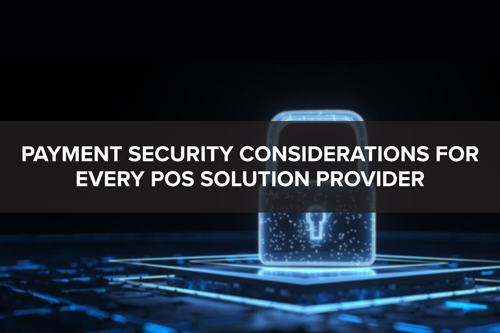 Omnichannel is a concept that successfully made the leap from trendy buzzword to common lingo, thanks to a pandemic that forced many consumers to adapt to new shopping habits. Most consumers don’t know about “channels,” but they know they want what they want when they want it. And merchants who want to make “everywhere commerce” a reality need an omnichannel point of sale solution provider capable of making complex operations look seamlessly simple.
Omnichannel is a concept that successfully made the leap from trendy buzzword to common lingo, thanks to a pandemic that forced many consumers to adapt to new shopping habits. Most consumers don’t know about “channels,” but they know they want what they want when they want it. And merchants who want to make “everywhere commerce” a reality need an omnichannel point of sale solution provider capable of making complex operations look seamlessly simple.
Payments are central to pulling off the omnichannel balancing act. But like most things, there’s a right way to go about things. There’s no room for cutting corners, which could open up small businesses to negative outcomes if they leak customer data or inadvertently give criminals access to data.
Solutions that Secure Omnichannel Payment Environments
Merchants need a platform that secures every payment environment, from card-present transactions to e-commerce and more. Omnichannel point of sale solution providers should be able to help businesses ensure that customer data is fully protected and not readable by unauthorized parties once it enters the payment platform. PCI-validated P2PE encryption, now the industry’s gold standard, makes this possible by ensuring card data can’t be decrypted until the payment processor receives it. This makes the merchant less susceptible to fraud and other potential risks.
But there are other options that omnichannel point of sale solution providers might also want to recommend. DirectE2EE, or direct end-to-end encryption, is an equally secure alternative to PCI-validated P2PE. The main difference is in how payment data moves from point of sale to the end processor.
Tokens present another strong way to secure omnichannel payments. Tokens essentially swap out a customer’s actual card number with randomly generated characters. However, tokenization doesn’t employ the algorithmic approach that encryption does. Unlike encrypted data that can be decrypted, tokens are stored and readable with a key in a secure access-only vault. Outside of that vault, tokenized data means virtually nothing. The business owner doesn’t even touch the data, further reducing their liability. Plus, the upside to using cross-platform tokenization is that the merchant can keep the same tokens even if they decide to change processors.
For online customers, convenience is key, and for most, that means fast and easy one-click checkouts. Helping merchants secure e-commerce payments is crucial for omnichannel point of sale solution providers, given the growth in digital transactions just since the pandemic began. Best practices include always requiring users to enter not just their card number but also the CVV (card verification value) number or ZIP code to prove they truly are the card owner. Additionally, online payments should always be encrypted on their way to the processor to keep sensitive card data safe from bad actors.
Getting payment security right is crucial to a business. Omnichannel point of sale solution providers need to ensure their portfolios include a range of payment security options that can meet any business owner’s specific needs.
Also, be ready to walk your clients through how each approach works to safeguard payment data from attacks and fraud. By choosing the right payments partner, you’re taking the first step to help merchants set up a secure and successful omnichannel business.



